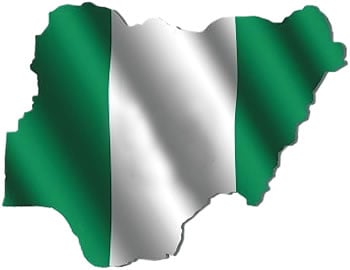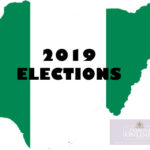Actually, the preamble for the first development plan in Nigeria was formulated in 1945 as a result of the British government initiative for the promotion of the economic and social advancement of the colonies stemming from the 1940 Colonial Development and Welfare Act. The plan made provision for the capital expenditure of a total of 55 million pounds of which the British government provided 23million pounds. After the civil war, thanks to Chief Obafemi Awolowo (1909-1987) as Minister of Finance and his successor, Shagari, the Nigerian economy rose rapidly. The “Super Permanent Secretaries” at that time impressed on General Gowon to save for the raining day by launching the Second National Development Plan. He then tapped Professor Adedeji to serve as Minister for National Planning and Reconstruction. Professor Adedeji had just graduated from Harvard University and who at the age of 36 had become a full-fledged Professor at the University of Ife now Obafemi Awolowo University (OAU). In addition, General Gowon brought brilliant Economists from the civil service to help Professor Adedeji in engineering the second National Development Plan. General Gowon created a Central Planning Office (CPO) between the nineteen and twenty- second floors in the now abandoned Independence building at the Tafawa Balewa Square(TBS), Lagos. The office was headed by Chief Gilbert Prince Obiajulu Chikelu, who was then, a director in the Ministry of Statistics. Other members of that planning office included Chief Olu Falae, Chief John Oyegun, Dr S.O. Omobomi, Joseph Oyewole Okunfulire, Mr. BoyeIlori, Mr. Peter Aliu, MrFunso Adetiba, Chief Ayo, C. Olumese, G.C. Ndagoba, Mr. A. Ajijo, Chief Femi Akande, Chief Chukwuemeka Ezeife, Remi Olowude, Chief J.B. Ilori, Otunba Gbenga Tiamiyu and Chief John D. Edozien while the permanent Secretary then was Chief Ime Ebong. The deputy was Chief N. Okubadejo from Ijebu-Ode.
The Third National Development Plan which commenced on the 1st April 1975 and was due to end on the 31st March 1980 but was extended by nine months to give the various civilian state governments more time within which to prepare their programmes of activities for the Fourth Plan period. Many projects commenced during the Second Plan were completed in the Third Plan period and reasonable progress towards implementation of new ones were made. Example of such projects include the cement works at Calabar,Ukpilla, Nkalagu, Shagamu,Yandev and Ashaka; the pulp and paper projects at Jebba, Calabar and Iwopin—four commercial vehicle assembly plants,two passenger car assembly plants; two petroleum refineries at Warri and Kaduna; two iron and steel plants at Ajaokuta and Aladja; and three steel rolling mills at Katsina, Jos and Oshogbo. Impressive achievements were also recorded in the transport sector. Over 10,000 kilometres of roads were built or rehabilitated, and among these were expressways such as the Lagos-Ibadan, the Lagos-Badagry, the Enugu-Port Harcourt and the Benin-Shagamu Expressways. New Airports were built in most of the State Capitals, a New International Airport was built in Lagos, and new seaports were developed in Lagos, Warri, Calabar and Port Harcourt.
The fourth and last development plan was launched by President Shagari on January 12, 1981 at the National Assembly, then in Lagos, presided over by the then Senate President, Dr Joseph Wayas. He told the nation on that day that,” the Fourth Plan is being launched at a time when the country’s production of crude oil, which is the main source of government revenue and foreign exchange earnings, has virtually stabilized. A basic strategy of the Fourth Plan would, therefore, be the promotion of optimal utilization of resources. Oil is a wasting asset. The resources generated from this sector must, therefore, be used to promote all-around expansion in the productive capacity of the economy so as to ensure self-sustaining growth in the shortest possible time”. When the Military came to power they jettisoned the idea of development plans and replaced it with rolling plans. But these days we don’t hear much of any development plan. We are bedevilled with internal security and insurgency to the extent that Nigeria has the highest number of displaced persons in Africa. I guess the only development plan we have now is the National Assembly that consumes 30 to 35% of our capital votes. Something is wrong with our system.
- Teniola, a former director at the Presidency, lives in Lagos
WATCH TOP VIDEOS FROM NIGERIAN TRIBUNE TV
- Let’s Talk About SELF-AWARENESS
- Is Your Confidence Mistaken for Pride? Let’s talk about it
- Is Etiquette About Perfection…Or Just Not Being Rude?
- Top Psychologist Reveal 3 Signs You’re Struggling With Imposter Syndrome
- Do You Pick Up Work-Related Calls at Midnight or Never? Let’s Talk About Boundaries








